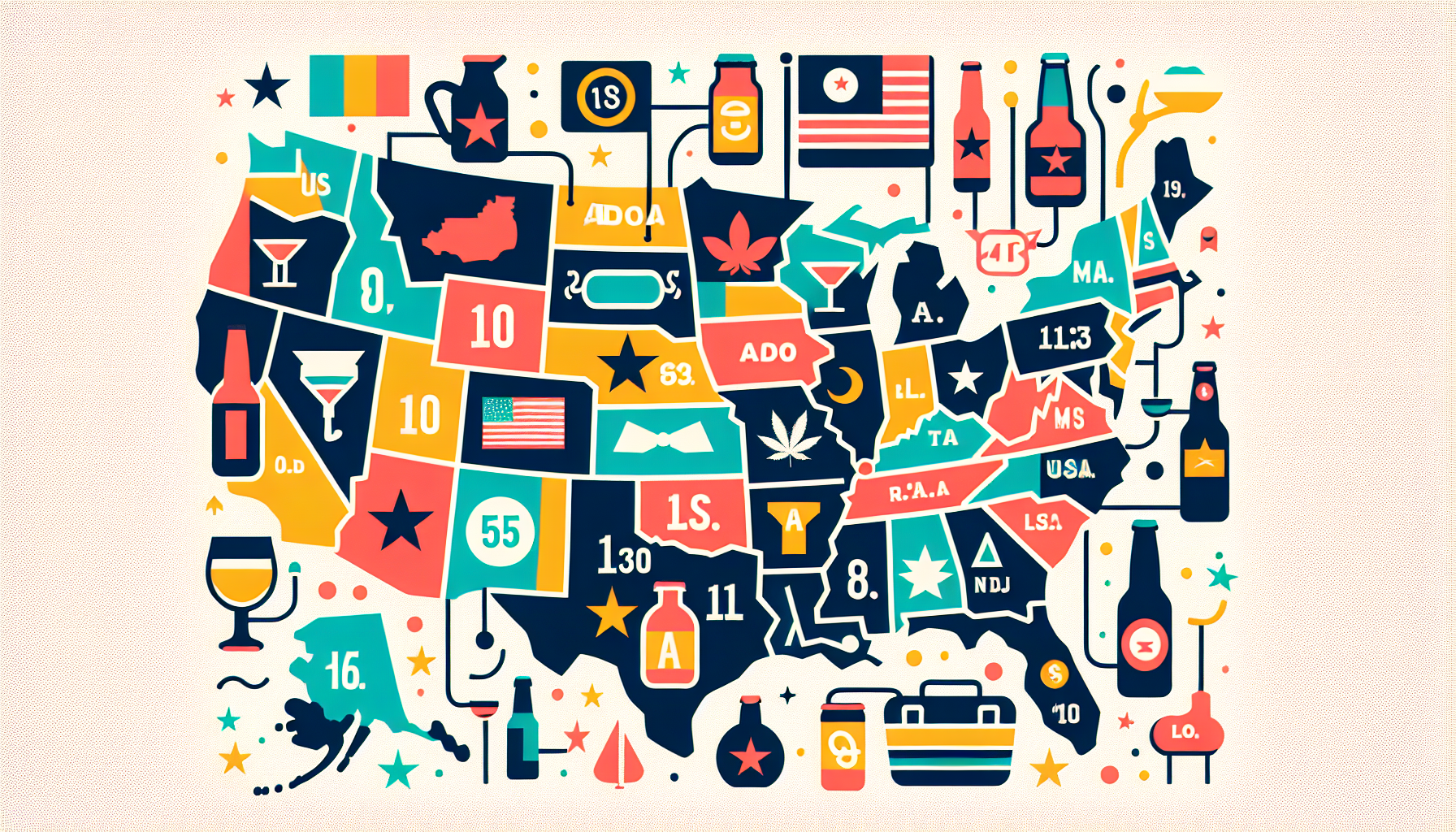Drinking Age Laws Across All 50 States: A Comprehensive Guide
The United States has a somewhat complicated relationship with alcohol consumption, especially when it comes to the legal drinking age. Set federally at 21 years of age in 1984 under the National Minimum Drinking Age Act, states were compelled to enforce this age limit or face a reduction in highway funds. This resulted in a nationwide standardization of the drinking age to 21. However, nuances and exceptions in state laws create an intricate patchwork of regulations that can bewilder residents and visitors alike. This comprehensive guide delves into the specifics of drinking age laws across all 50 states, highlighting the uniformity and the exceptions that punctuate the landscape.
The Uniform Standard: 21 Years of Age
Across the board, every state and the District of Columbia abide by the federally mandated minimum drinking age of 21 years. This uniformity ensures that for the vast majority of circumstances, the same age limit applies regardless of state lines for purchasing and publically consuming alcohol. The primary intention behind this regulation is to reduce alcohol-related accidents among teenagers and young adults, a goal bolstered by research studies indicating a decrease in vehicular fatalities since its enactment.
State-Specific Exceptions and Variations
Despite the federal mandate, several states have carved out exceptions that allow for alcohol consumption under specific conditions and scenarios for individuals below the age of 21. These exceptions often reflect cultural, religious, or familial considerations.
Parental, Guardian, and Spousal Consent
In numerous states, individuals under the age of 21 are permitted to consume alcohol under the direct supervision of a parent or guardian. States such as Texas, Louisiana, and Wisconsin allow minors to consume alcohol in the presence of consenting family members, often within private residences or during family gatherings. Similarly, some states extend this exception to include spouses of legal drinking age, allowing them to provide alcohol to their underage partners in private settings.
Educational and Religious Purposes
Exemptions are also made for educational and religious purposes across several states. For instance, culinary students who are under the legal drinking age may legally taste alcohol as part of their curriculum, provided they do not ingest it. Religious ceremonies, such as communion in Christian churches or the Kiddush in Jewish traditions, also serve as grounds for legally sanctioned exceptions, allowing minors to consume alcohol as part of the ritual.
Medical Use
Another exception to the drinking age rule pertains to medical use. In certain states, alcohol can be prescribed to individuals under 21 for medical reasons. This usage is tightly controlled and rarely cited as an exception, but it showcases the flexibility built into the ostensibly rigid 21-year minimum.
Employment-Related Consumption
Individuals employed in establishments that serve alcohol may be allowed to taste alcoholic beverages as part of their job training or quality control measures. This exception is notably limited and does not generally allow for the full consumption of alcohol but rather minimal tasting under specific, controlled circumstances.
The Importance of Local Laws
While federal law mandates the 21-year minimum, the exceptions outlined illustrate the importance of understanding state-specific regulations. Local jurisdictions within states may also enact their own rules, further complicating the legal landscape around alcohol consumption. For those under 21, it’s crucial to be aware of both state and local laws to ensure compliance.
Conclusion
The legal drinking age in the United States is universally set at 21, but the plethora of exceptions across different states highlights a complex regulatory environment shaped by cultural, religious, and familial considerations. While these exceptions provide some flexibility within the overarching framework, they also underscore the importance of being well-informed about the specific laws in each state. As the debate continues over the appropriate age for alcohol consumption, understanding the current legalities remains essential for both residents and visitors throughout the United States.


